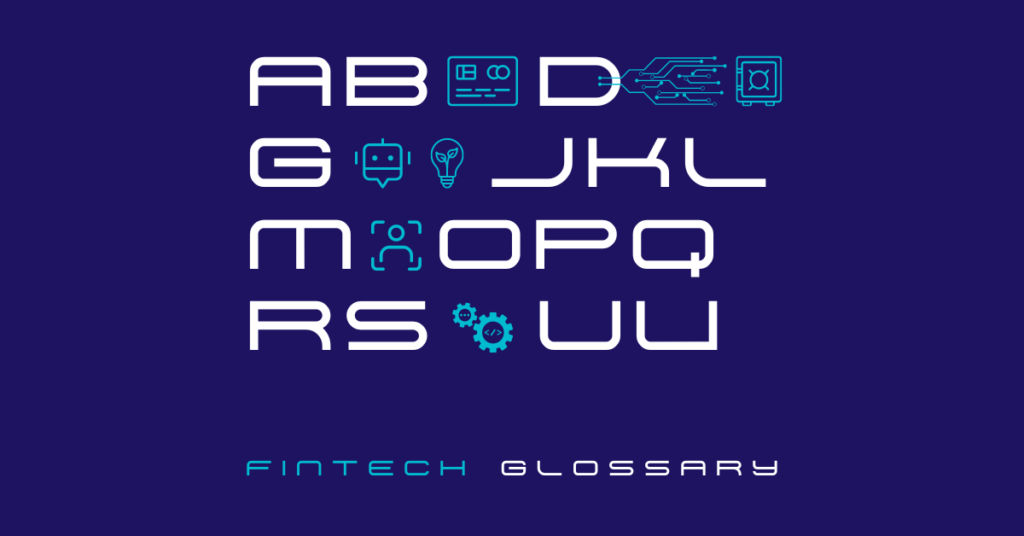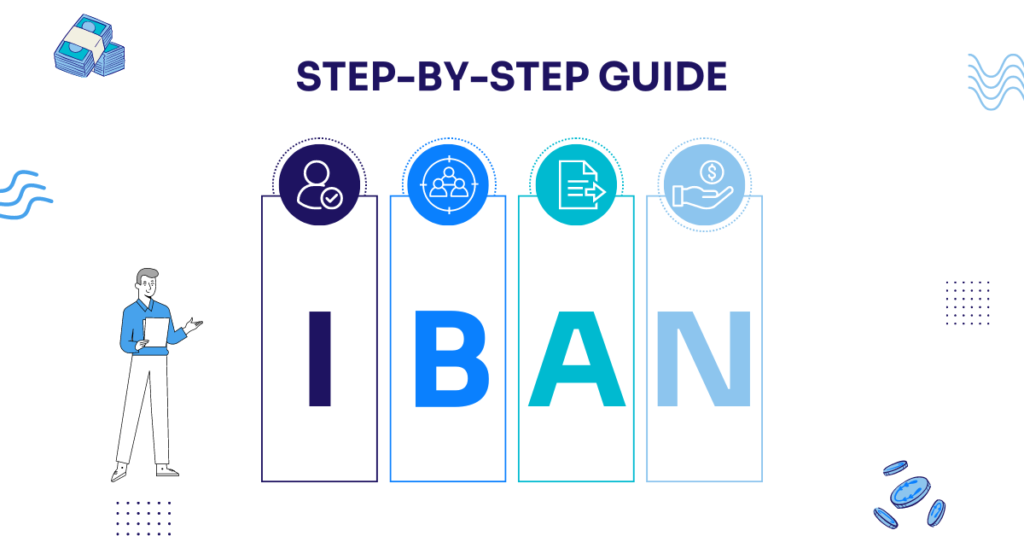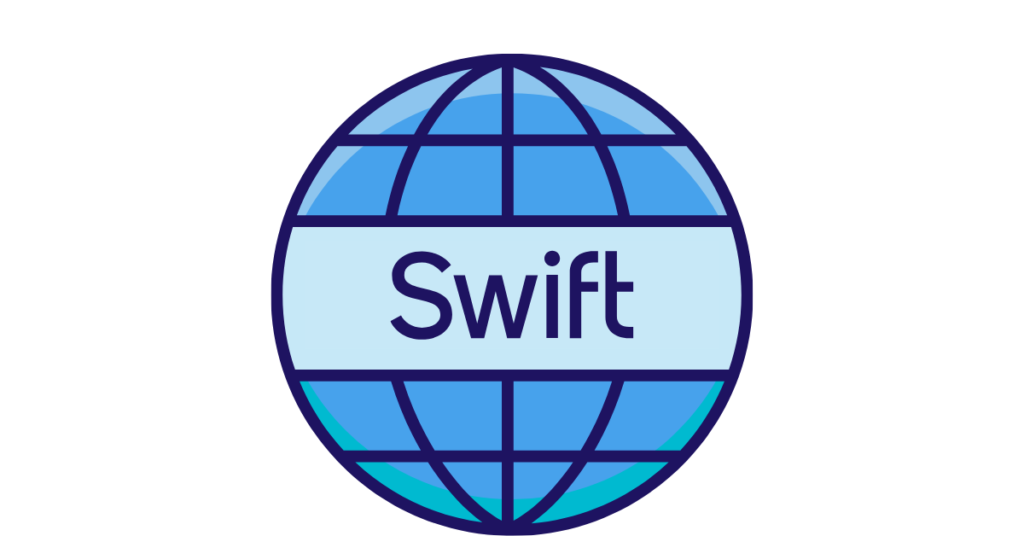Decoding the Jargon: Empowering Your Financial Journey
Whether you are a financial professional, an entrepreneur, an investor, or simply interested in understanding the fintech landscape, this glossary equips you with the foundational knowledge necessary to navigate the exciting and ever-changing world of financial technology. By embracing these terms and concepts, we can actively participate in shaping the future of finance and harness the potential of fintech for the benefit of individuals, businesses, and economies worldwide.
From digital payments and banking technologies to artificial intelligence and decentralised finance, this glossary covers a wide range of terms and their definitions. It is important to note that some of these terms may have different meanings in other contexts, emphasise the need to interpret them within the fintech domain.
As the fintech industry continues to evolve, this glossary serves as a valuable resource to enhance our comprehension of the concepts and terminology that define this dynamic field. By staying up-to-date with the evolving language of fintech, we can better engage in discussions, make informed decisions, and leverage the potential of emerging technologies to transform the world of finance.
Let’s get started!
A is for Account
Account-Based Payment Instruments: These are payment instruments that provide access to funds held in accounts. They differ from digital asset-based payment instruments, which hold funds in a decentralised manner without the need for an account-holding institution. Account-based payment instruments can include account-based central bank digital currencies (CBDCs) and those linked to accounts held at banks and other deposit-taking institutions. Prepaid accounts like e-money and mobile money also fall under this category.
Advanced Economies (AEs): Countries classified as ‘Advanced Economies’ according to the IMF’s World Economic Outlook.
Aggregate Fintech Activity Index: An indicator that measures fintech activity across countries. It considers four activities: equity investments in fintech companies, the use of fintech credit facilitated by electronic/online platforms, the use of digital payment services by households and firms, and downloads of finance smartphone apps. This index was developed in the Fintech Activity note and covers the period from 2014 to 2018.
Algorithmic Decision-Making: The use of data inputs and statistical models to make decisions, such as approving a payment instruction or a loan. Algorithms used in this process analyse large amounts of data, including big data, to identify correlations or derive useful information for decision-making. The involvement of humans in the decision-making process can vary depending on the specific algorithm and business process.
AML/CFT Measures: Anti-Money Laundering/Countering (or Combating) the Financing of Terrorism measures. These encompass laws, regulations, supervisory actions, and enforcement efforts aimed at preventing, detecting, investigating, or prosecuting the movement or deposit of funds associated with criminal activities. The Financial Action Task Force (FATF) is a key international body in this field.
Anti-Tying Rules: Legal provisions that prohibit a company, such as a bank, from offering a product or service on the condition that the customer either obtains another product or service from the same company or refrains from obtaining a similar product from the company’s competitors.
Application Program Interface (API): A set of rules and specifications that allow software programs to communicate and interact with each other. APIs facilitate the integration and interaction of different programs.
Artificial Intelligence (AI): The theory and development of computer systems capable of performing tasks that traditionally required human intelligence. Recent advancements in computing power and the availability of large amounts of data have led to a resurgence of interest in AI. Applications of AI include diagnosing diseases, language translation, autonomous vehicles, and various applications in the financial sector.
Asset-Based Lending (ABL): Lending products that are secured by movable property assets, which can be tangible (such as equipment, inventory, and invoices) or intangible (such as trademarks and patents). Asset-based lending products include factoring, reverse factoring, secured revolving lines of credit, merchant cash advances, and equipment/financial leasing.
Automated Clearing House (ACH): An electronic clearing system in which payment orders are exchanged among financial institutions primarily via magnetic media or telecommunications networks. ACHs handle operations such as direct deposits of paychecks, debts for regular payments, and money transfers.
B is for Banking
Bali Fintech Agenda (BFA): A set of twelve policy elements developed by the IMF and the World Bank to assist member countries in harnessing the benefits of fintech while managing the associated risks. For more details, refer to the Bali Fintech Agenda: Background Policy Paper.
Banking-as-a-Service (BaaS): A business model in which fintech firms and other third parties integrate banking products into their own offerings without obtaining their own banking licenses. They can leverage a bank’s regulatory infrastructure by directly connecting to the bank’s systems via APIs.
Basel Core Principles (BCPs): Minimum global standards for the sound prudential regulation and supervision of banks. The Basel Committee for Banking Supervision initially published these principles in 1997 and has updated them in 2006 and 2012.
Big Data: A term that refers to the massive volume of data generated through the increased use of digital tools and information systems. Big tech companies, which primarily provide digital services, have started offering financial services leveraging their large customer bases and transaction data. Examples of big tech companies include Alibaba, Facebook, Grab, and Safaricom.
Blockchain Technologies: Distributed ledgers that store transaction details in blocks of information. New information blocks are added to the chain through a computerised validation process. Blockchain technologies are often associated with cryptocurrencies and offer increased transparency and security. Distributed Ledger Technology (DLT) is a broader term encompassing various forms of distributed ledgers.
C is for Credit
Cash-In, Cash-Out (CICO) Network: A network that enables the conversion of electronic money into cash or vice versa. Mobile-money agent networks often provide these services and are commonly referred to as “CICO networks.”
Central Bank Digital Currencies (CBDCs): A new form of central bank money that serves as both a medium of exchange and a store of value. CBDCs are digital and differ from balances in traditional reserve or settlement accounts. The specific definition and features of CBDCs may vary.
Challenger Bank: A newly licensed bank that competes with established financial institutions. The term emerged in the UK market to refer to greenfield banks built from scratch, unrelated to dominant financial service providers. Challenger banks, such as Metro Bank and Virgin Money, focus on improving the retail branch experience, while others like Starling and Oak North rely more exclusively on digital channels.
Cloud Computing: An innovation in computing that utilises an online network (the “cloud”) of hosting processors to increase computing capacity and flexibility.
Contextualised Finance: The provision of financial services integrated into the workflow or context of another activity. Examples include integrating payments into ride-hailing platforms or offering loans on e-commerce platforms. This concept is also known as embedded finance.
Core Banking Systems: Systems used by commercial banks and other financial institutions to manage their core products, such as current and savings accounts and loans.
Correspondent Banking: An arrangement where one bank, called the correspondent, holds deposits owned by other banks, known as respondents. Correspondent banks provide payment and other services to respondent banks.
Credit-Reporting System: Institutions, individuals, rules, procedures, standards, and technology that enable information flows relevant to credit and loan decisions. Credit-reporting systems consist of databases containing debtor information, along with the necessary institutional, technological, and legal framework for their functioning. These systems may contain information on individuals and/or businesses.
Credit Scoring: A statistical method used to evaluate the probability of a prospective borrower fulfilling their financial obligations associated with a loan. Credit scoring models help lenders assess creditworthiness and make informed lending decisions.
Cross-Border Payments: Fund transfers in which the payment-service providers of senders and recipients are located in different jurisdictions. Cross-border payments may or may not involve currency conversion.
Crowdfunding: The practice of matching individuals or companies seeking funds with those looking to invest or provide funding. Crowdfunding platforms facilitate this process without traditional financial intermediaries. Depending on the type of funding, crowdfunding can be categorised as loan-based crowdfunding or equity-based crowdfunding.
D is for Data
Data Localization Laws: Laws that impose restrictions on the cross-border flow of data.
Decentralised Finance (DeFi): A system of alternative financial markets, products, and systems that operate using crypto-assets and smart contracts built on distributed ledger technology.
Deposit Insurance: A system established to protect depositors by providing insurance coverage for their deposits in the event that a bank is unable to meet its obligations.
Digital Asset: A digital instrument issued or represented using distributed ledger technology. This term does not include digital representations of fiat currencies.
Digital Bank: Deposit-taking institutions that primarily deliver banking services through electronic channels instead of physical branches. Digital banks have a technology-enabled business model and provide their services remotely, often with limited or no branch infrastructure.
Digital Financial Services (DFS): Financial products and services, including payments, transfers, savings, credit, insurance, securities, financial planning, and account statements, delivered via digital/electronic technology such as e-money, payment cards, and regular bank accounts.
Digital ID: Electronically captured and stored attributes and/or credentials that uniquely identify a person. Digital ID systems use digital technology throughout the identity lifecycle, including data capture, validation, storage, transfer, credential management, and identity verification/authentication.
Digital Literacy: The ability to define, access, manage, integrate, communicate, evaluate, and create information safely and appropriately using digital technologies and networked devices for participation in economic and social life.
Digital Payments: Payment instructions initiated via the Internet or other telecommunications networks using devices such as computers, mobile phones, or POS devices. Digital payments can involve e-money products, payment cards, credit/debit transfers, or other innovative payment methods.
Distributed Ledger Technology (DLT): A means of saving information through a distributed ledger, which is a repeated digital copy of data available at multiple locations.
E is for Electronic
E-commerce: The buying and selling of goods or services using the Internet.
E-KYC: Electronic Know Your Customer. It refers to digital processes and technologies used for customer identification and verification.
Electronic Money Institution (EMI): A legal entity authorised to issue electronic money. (see also: E-money)
Electronic Signature or E-signature: An electronic sound, symbol, or process attached to or associated with a contract or record and executed or adopted by a person with the intent to sign the record.
Embedded Finance: The seamless integration of financial products or services into non-financial products or services.
Emerging Market and Developing Economies (EMDEs): Countries classified as “Emerging Markets and Developing Economies” by the IMF’s World Economic Outlook.
E-money or Electronic Money: Prepaid instruments offered by banks, non-deposit-taking payment service providers, and mobile network operators. E-money can be accessed through card-based, mobile, or online platforms.
Equity Crowdfunding: Crowdfunding focused on equity instruments, allowing individuals to invest in companies without traditional equity registration and listing processes.
F is for Finance
Factoring: A form of asset-based finance in which credit is based on the value of a borrower’s accounts receivable or invoices. It allows a financial institution to provide financing to an SME supplier by purchasing their accounts receivable.
Fast Payments: Payments in which the transmission of the payment message and the availability of final funds to the payee occur in real time or near-real time, operating on a 24/7 basis as much as possible.
Financial Action Task Force (FATF): An inter-governmental body that sets international standards to combat money laundering, terrorism financing, and proliferation financing. The FATF works to generate political will for national reforms and provides guidance on anti-money laundering and counter-terrorism financing efforts.
Financial Consumer Protection (FCP): The laws, regulations, and institutional arrangements that safeguard consumers in the financial marketplace of a jurisdiction.
Financial Inclusion: Ensuring individuals and businesses have access to affordable and useful financial products and services that meet their needs, such as transactions, payments, savings, credit, and insurance.
Financial Intermediary: Entities that facilitate transactions between parties without having a direct relationship with them. Financial intermediaries include banks, investment banks, mutual and pension funds, broker-dealers, and insurance and leasing companies.
Financial Service Provider (FSP): Any entity or individual involved in providing financial services, including banks, non-bank financial institutions (NBFIs), insurance companies, e-money issuers, and payment providers.
Financial Stability Board (FSB): An international body that monitors and makes recommendations about the global financial system.
Fintech: Technological advancements that have the potential to transform the provision of financial services, leading to new business models, applications, processes, and products. Examples include e-money, peer-to-peer lending, credit scoring, robo-advisory services, and distributed ledger technology.
Fintech Firm: A company specialise in offering digital financial services.
G is for Global
Gazelle company: A company which achieves a revenue growth of at least 20% annually. Alongside sales growth, gazelles are also commonly known for their fast employment expansion.
G7 Fundamental Elements of Cybersecurity for the Financial Sector: A statement outlining fundamental principles for good cybersecurity in the financial services sector.
Global Stablecoins: Stablecoins with the potential for adoption across multiple jurisdictions and substantial transaction volume.
H is for Hyper
Hyperbank (High Performace Banking): is an innovative and technologically-driven approach to banking that aims to provide customers with a superior and seamless banking experience. It involves leveraging cutting-edge technologies, data analytics, and real-time capabilities to optimise various aspects of banking operations.
I is for Innovation
Innovation Facilitator: Public sector initiatives, such as regulatory sandboxes, innovation hubs, and innovation accelerators, aimed at engaging with the fintech sector and fostering innovation.
Internet of Things (IoT): A system of connected devices that gather data, connect to the Internet or local networks, generate analytics, and adapt behaviour based on network data. In finance, IoT can be used to track shipments, automate settlement of agreements, and make asset-based financial products more affordable.
Interoperability: Technical or legal compatibility that enables systems or mechanisms to be used together. In the context of payments systems, interoperability allows customers of different payment-service providers (PSPs) to transact seamlessly as if they were customers of the same PSP.
K is for Know
Know Your Customer (KYC): The process used by financial institutions to identify and verify customers’ identities, understand the nature of their business relationships, conduct ongoing due diligence, and monitor transactions for consistency with the institution’s knowledge of the customer and risk profile. KYC is part of the customer due diligence (CDD) requirements established by the Financial Action Task Force (FATF).
M is for Mobile
Machine Learning (ML): A sub-category of artificial intelligence that involves designing algorithms to solve problems by optimise automatically through experience and with limited or no human intervention.
Mass Payment: A method of making payments to multiple recipients simultaneously through an online transaction, often by uploading a document containing all the relevant payment details or using a mass payment API.
Merchant Aggregator: A service provider that enables merchants to accept payments without setting up individual merchant accounts. Aggregators accept payments on behalf of merchants.
Mobile Banking: Services provided by a bank or financial service provider that allow customers to access various inquiry, transactional, and customer services through their mobile devices.
Mobile Money: An e-money product where the record of funds is stored on a mobile phone or a central computer system, and can be accessed through specific payment instructions issued from the user’s mobile phone.
Mobile Payment: A type of electronic payment where the payment instrument used is a mobile money product.
Mobile Wallet: A service or product that allows customers to access multiple bank and e-money accounts through a common interface on a mobile device. These services can be provided by a third party and may leverage technologies such as APIs and tokenization.
Money Transfer Operator (MTO): A non-deposit taking payment-service provider that facilitates payment transfers by receiving funds from the sender and transferring them to the recipient, typically through cash or bank transfers.
N is for New
National Payment System (NPS): The collection of institutional arrangements and infrastructures that facilitate the transfer of monetary value in a given jurisdiction. It encompasses payment systems, payment instruments, and payment-service providers.
Near-Field Communication (NFC): A technology that enables communication between devices when they are in close proximity. NFC is used for various purposes, including contactless payments and transferring data between devices.
Neo-Bank: A technology company that offers banking or bank-like services without being a licensed bank. Neo-banks can operate as payment service providers (PSPs) or non-bank financial institutions (NBFIs).
Non-Bank Financial Institution (NBFI): A financial institution that does not have a full banking license and cannot accept deposits from the public. NBFIs provide various financial services such as investment, leasing, consumer finance, and money transmission.
O is for Open
Open Banking: A set of services that allow consumers and small and medium-sised enterprises (SMEs) to securely share their bank and credit card transaction data with trusted third parties, enabling the development of applications and services that save time and money. It also allows initiating payments directly from payment accounts to payees using interfaces provided by third parties.
Online Investment Platforms: A digital service that allows individuals to invest in various financial instruments and manage their portfolios conveniently through a user-friendly online interface.
P is for Payments
Payment Aggregator: Third-party institutions that enable acquiring institutions to reach smaller merchants by maintaining the relationship with the merchants and handling operational and servicing aspects.
Payments-Service Provider (PSP): An entity that provides payment services to end-users, including banks, non-bank financial institutions, money-transfer operators, e-money issuers, payment aggregators, and payment gateways.
Peer-to-Peer Lending (P2PL): A lending business model that uses online platforms to connect lenders with borrowers, bypassing traditional financial intermediaries. It is also referred to as crowdfunding.
Principles for Financial Market Infrastructures (PFMI): International standards that apply to systemically important financial market infrastructures, including payment systems, central securities depositories, central counterparties, and trade repositories.
R is for Regulation
Real-time gross settlement (RTGS): The settlement of payments, transfer instructions, or obligations on a transaction-by-transaction basis in real time.
Regtech: Short for “regulatory technology,” it refers to the use of technology to address regulatory and compliance requirements more effectively and efficiently.
Regulation (in Fintech): Set of rules, laws, and guidelines established by governments and regulatory bodies to govern and oversee financial tech companies. The primary objectives of fintech regulation are to protect consumers, maintain financial stability, promote fair competition, and prevent fraudulent activities.
Remittances: Small-value, cross-border transfers of funds from migrants or individuals to their home countries.
Request to Pay (RTP): A payment instrument through which a payee sends a payment request to a payer, who retains control over payment initiation and transaction security. RTP is emerging in open banking and faster payments systems.
Retail Fast-Payment Systems: Systems that enable payment-service providers to make funds available to payees almost instantaneously, typically operating 24/7. They may include value-added services like alias-based payments, QR codes, and API-based payment services.
Reverse Factoring: A financing product in which a financial institution provides immediate liquidity to small and medium-sised enterprises (SMEs) by discounting their accounts payable from a large buyer based on the credit risk of the buyer.
Robo-Advisory Services: Automated, algorithm-driven financial planning and investment services.
S is for Smart
Sandbox/Regulatory Sandbox: A controlled and time-bound environment for testing new technologies or business models, often involving regulatory waivers to encourage innovation while mitigating risks.
Smart Money: Investments or transactions made by individuals or entities with expert knowledge of financial markets, such as market leaders, funds, central banks, and professional investors.
Software-as-a-Service (SaaS): A software delivery and licensing model in which software is accessed online through a subscription, eliminating the need for installation on individual computers. SaaS can provide various services to banks and other financial service providers, such as data processing, credit scoring, and electronic know-your-customer (e-KYC).
Stablecoin: A type of cryptocurrency designed to maintain a stable value relative to a specified asset or a pool/basket of assets.
Specialist Banks: Banks that offer a limited range of products or target specific markets or customer segments. They often rely on third-party distribution channels and serve a small customer base.
Super Apps: Applications that provide multiple services and aim to be a single point of entry and consolidation for various user needs.
Suptech: Short for “supervisory technology,” it refers to the use of technology-enabled solutions to enhance the efficiency and effectiveness of supervisory activities.
T is for Technology
TES – a term used in three different contexts:
- Technology Enabled Service is a business which uses technology to better deliver the service it provides. For a TES, technology is the primary input, as opposed to labour.
- Treasury Electronic System is a digital platform or software used by treasury departments within organizations to manage and streamline their treasury operations, including cash management, risk management, liquidity management, and financial transactions.
- Treasury Execution Services generally refers to a range of financial services provided by banks or financial institutions to assist corporate clients with executing their treasury operations effectively. These services may include foreign exchange execution, interest rate hedging, cash management solutions, trade finance, and other treasury-related activities, all aimed at optimising the management of their liquidity, mitigating financial risks, and ensuring smooth and efficient financial transactions.
Tokenisation – a term used in three different contexts:
- Digital assets that are represented in a manner that allows peer-to-peer exchange without need for an intermediary institution maintaining record of ownership. See also: Digital assets.
- Digital representation of traditional assets—for example, financial instruments, a basket of collateral or real assets—using technologies that can enable a peer-to-peer transfer. The economic value and rights derived from these assets is embedded into the tokens.
- In the payment cards domain, to indicate provisioning of an alternate account identifier in a variety of devices that links back to the primary account identifier.
V is for Virtual
Virtual Asset: A digital representation of value that can be traded, transferred, and used for payment or investment purposes. It includes crypto-assets, digital assets, and other forms of digital value.
Venture Capital (VC): Cash investments provided to start-up companies and small businesses with high growth potential in exchange for equity in the company.
Virtual-Asset Service Provider (VASP): A natural or legal person conducting one or more virtual asset-related activities on behalf of another person, such as exchanging virtual assets for fiat currencies, transferring virtual assets, safekeeping/administering virtual assets, and providing financial services related to virtual asset offers and sales.
Virtual IBAN or vIBAN: A virtual account is an alternative to traditional IBANs (International Bank Account Numbers), allowing businesses to make cross-border payments in multiple currencies with more control, efficiency, while simplifying payment tracking and reconciliation through unique IBANs for each client. Virtual IBANs are typically provided by fintech companies and are known for their user-friendly experience.
W is for Word
While the glossary stops at ‘V’ right now, this continuously updated glossary ensures that you have access to the latest fintech terminology, empowering you to navigate the ever-evolving landscape with confidence and stay informed about cutting-edge developments. With technology reshaping the financial sector, a clear understanding of these concepts is crucial for embracing the fintech revolution.
Stay tuned as this essential guide expands alongside the growing fintech space!
X is for Capitalixe
Want to learn how fintech payments and banking solutions can help your business scale? Our team of seasoned experts is ready to assist you on that transformative journey. Get in touch for a complimentary consultation!









